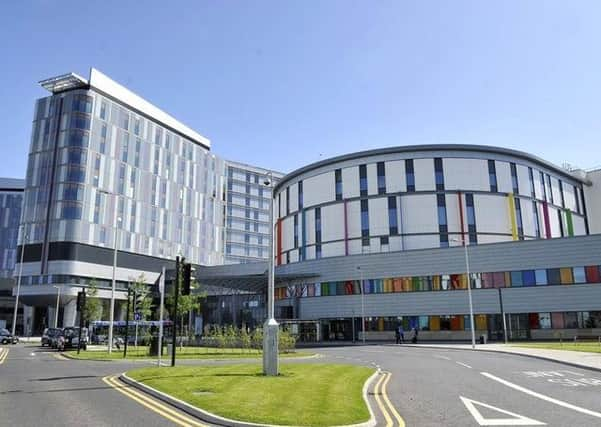Fatal infections 'linked to Glasgow children's hospital'


A review of the cases of 84 children who developed infections at the hospital found that a third “probably” originated in the hospital, while the rest were “possibly” picked up there BBC Scotland reports.
An infection linked to the hospital was the “primary cause of death” of one young cancer patient, while infections from contaminated water at the hospital were an “important contributory factor" to the death of another child, the report found.
Advertisement
Hide AdAdvertisement
Hide AdThe case note review, which will be published on Monday next week, was commissioned by Health Secretary Jeane Freeman as part of a wider investigation into the Queen Elizabeth University Hospital, which includes the Royal Hospital for Children.
It examined the number of children who were affected by a type of infection caused by Gram-negative environmental (GNE) bacteria between 2015 and 2019, and whether those infections were linked to the hospital.
The authors said they recognised that families would be disappointed that they could not have “greater certainty” about the possible link between their child’s infection and the hospital.
An embargoed copy of the report, seen by the BBC, was issued to the families of those children affected ahead of the report’s publication.
For one child in the early stages of a stem cell transplant, a bacterial infection was the “primary cause of death”, the review found. Its authors concluded that the infection was “probably” linked to the hospital environment.
The bacteria was also recorded as a possible contributory factor in the death of another child, six weeks after an infection.
Kimberly Darroch believes her daughter Milly Main, who died in 2017, is referenced in the report.
"There is nothing that can bring Milly back and a tiny part of me still hoped that the link to the water supply wasn’t true," she said. “Finally we are starting to get answers after all these years.“If it wasn’t for the whistleblowers who came forward and Anas raising this in Parliament, we would have never known what caused Milly’s death.“This has been a difficult time for us and we will need to come to terms with this as a family.”
Advertisement
Hide AdAdvertisement
Hide AdThe review looked at the cases of 84 children, and 118 episodes of infection.
Labour MSP Anas Sarwar was contacted by whistleblowers in 2019, claiming a child with cancer died after contracting an infection caused by contaminated water at the QUEH campus.
He said: “This has been a long and painful journey for the families involved, and my thoughts are with Kimberly and everyone who loved Milly.“I pay tribute once again to the brave NHS whistleblowers who put their jobs on the line to expose the truth and overcame repeated cover-up attempts by the hospital management.“The Scottish Government now has a duty to support all the families affected at this sad time.”
NHS Greater Glasgow and Clyde declined to comment on the matter ahead of formal publication of the review.
A spokesperson said: “Families of patients referred to in the Case Note Review have been provided an embargoed copy of the report ahead of its publication on Monday.
"This is to allow families to reflect on its contents before it is available to the public.
“We fully respect this and we will respond when the report is published on Monday.”
A message from the Editor:
Thank you for reading this article. We're more reliant on your support than ever as the shift in consumer habits brought about by coronavirus impacts our advertisers.
If you haven't already, please consider supporting our trusted, fact-checked journalism by taking out a digital subscription.
Comments
Want to join the conversation? Please or to comment on this article.